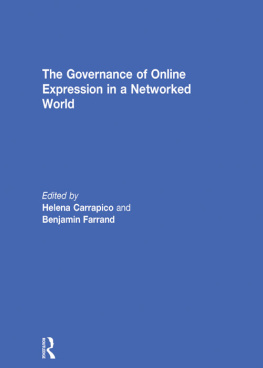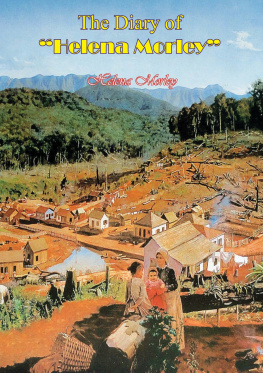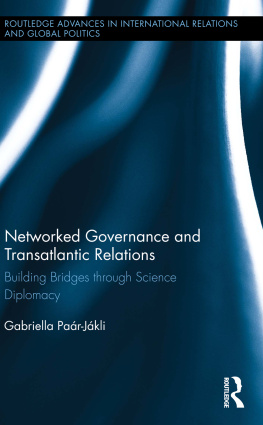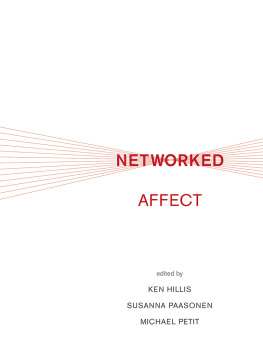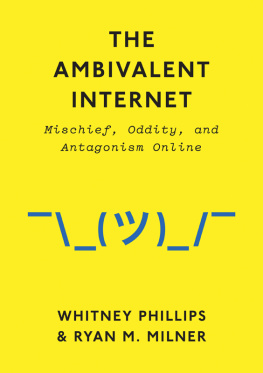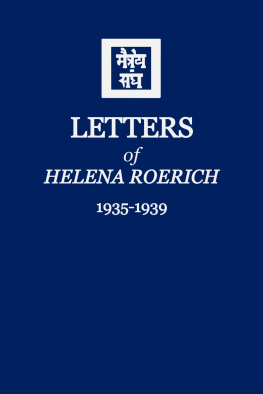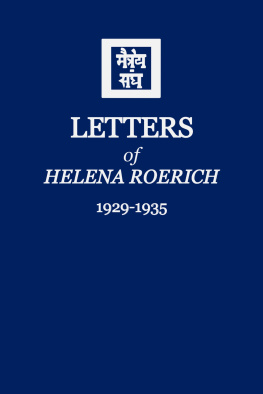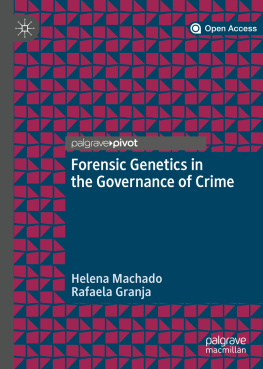The Governance of Online Expression in a Networked World
In recent years, we have witnessed the mushrooming of pro- democracy and protest movements not only in the Arab world, but also within Europe and the Americas. Such movements have ranged from popular upheavals, like in Tunisia and Egypt, to the organization of large-scale demonstrations against unpopular policies, as in Spain, Greece and Poland. What connects these different events are not only their democratic aspirations, but also their innovative forms of communication and organization through online means, which are sometimes considered to be outside of the States control. At the same time, however, it has become more and more apparent that countries are attempting to increase their understanding of, and control over, their citizens actions in the digital sphere. This involves striving to develop surveillance instruments, control mechanisms and processes engineered to dominate the digital public sphere, which necessitates the assistance and support of private actors such as Internet intermediaries. Examples include the growing use of Internet surveillance technology with which online data traffic is analysed, and the extensive monitoring of social networks. Despite increased media attention, academic debate on the ambivalence of these technologies, mechanisms and techniques remains relatively limited, as is discussion of the involvement of corporate actors. The purpose of this edited volume is to reflect on how Internet-related technologies, mechanisms and techniques may be used as a means to enable expression, but also to restrict speech, manipulate public debate and govern global populaces.
This book was published as a special issue of the Journal of Information Technology & Politics.
Helena Carrapico is Lecturer in Politics and International Relations at Aston University. Her research focuses on European Security, in particular cyber security and cyber crime.
Benjamin Farrand is Lecturer in Intellectual Property Law and Policy at the University of Strathclyde Law School. His research focuses on the interaction between law and politics in technology regulation.
The Governance of Online Expression in a Networked World
Edited by
Helena Carrapico and Benjamin Farrand
First published 2016
by Routledge
2 Park Square, Milton Park, Abingdon, Oxon, OX14 4RN, UK
and by Routledge
711 Third Avenue, New York, NY 10017, USA
Routledge is an imprint of the Taylor & Francis Group, an informa business
2016 Taylor & Francis
All rights reserved. No part of this book may be reprinted or reproduced or utilised in any form or by any electronic, mechanical, or other means, now known or hereafter invented, including photocopying and recording, or in any information storage or retrieval system, without permission in writing from the publishers.
Trademark notice: Product or corporate names may be trademarks or registered trademarks, and are used only for identification and explanation without intent to infringe.
British Library Cataloguing in Publication Data
A catalogue record for this book is available from the British Library
ISBN 13: 978-1-138-92707-00
Typeset in Times New Roman
by RefineCatch Limited, Bungay, Suffolk
Publishers Note
The publisher accepts responsibility for any inconsistencies that may have arisen during the conversion of this book from journal articles to book chapters, namely the possible inclusion of journal terminology.
Disclaimer
Every effort has been made to contact copyright holders for their permission to reprint material in this book. The publishers would be grateful to hear from any copyright holder who is not here acknowledged and will undertake to rectify any errors or omissions in future editions of this book.
Contents
Benjamin Farrand and Helena Carrapico
Yana Breindl and Bjoern Kuellmer
Ben Wagner
Benjamin Farrand
Peter Jay Smith
Michael J. Jensen and Henrik P. Bang
Kenneth Rogerson and Daniel Milton
The chapters in this book were originally published in the Journal of Information Technology and Politics, volume 10, issue 4 (2013). When citing this material, please use the original page numbering for each article, as follows:
Chapter 1
Networked Governance and the Regulation of Expression on the Internet: The Blurring of the Role of Public and Private Actors as Content Regulators
Benjamin Farrand and Helena Carrapico
Journal of Information Technology and Politics, volume 10, issue 4 (2013) pp. 357368
Chapter 2
Internet Content Regulation in France and Germany: Regulatory Paths, Actor Constellations, and Policies
Yana Breindl and Bjoern Kuellmer
Journal of Information Technology and Politics, volume 10, issue 4 (2013) pp. 369388
Chapter 4
Governing Internet Expression: How Public and Private Regulation Shape Expression Governance
Ben Wagner
Journal of Information Technology and Politics, volume 10, issue 4 (2013) pp. 389403
Chapter 5
Regulatory Capitalism, Decentered Enforcement, and its Legal Consequences for Digital Expression: The Use of Copyright Law to Restrict Freedom of Speech Online
Benjamin Farrand
Journal of Information Technology and Politics, volume 10, issue 4 (2013) pp. 404422
Chapter 6
Speaking for Freedom, Normalizing the Net?
Peter Jay Smith
Journal of Information Technology and Politics, volume 10, issue 4 (2013) pp. 423443
Chapter 7
Occupy Wall Street: A New Political Form of Movement and Community?
Michael J. Jensen and Henrik P. Bang
Journal of Information Technology and Politics, volume 10, issue 4 (2013) pp. 444461
Chapter 8
A Policymaking Process Tug-of-War: National Information Security Policies in Comparative Perspective
Kenneth Rogerson and Daniel Milton
Journal of Information Technology and Politics, volume 10, issue 4 (2013) pp. 462476
For any permission-related enquiries please visit: http://www.tandfonline.com/page/help/permissions
GUEST EDITORIAL
Benjamin Farrand
Helena Carrapico
ABSTRACT. This editorial provides an overview of the themes of network governance and content regulation that are expanded upon in the subsequent articles, identifying key issues and concerns that are prevalent in the literature in this field. In particular, this text considers governance not as an Internet-specific phenomenon, but as a global phenomenon, identifying and discussing literature pertaining to governance both online and offline, and providing examples of theories that seek to explain these forms of governance. Focusing on the interaction between public and private actors in content regulation, this editorial highlights that content regulation is a complex and contested issue that cannot be separated from its social and cultural contexts, and provides an overview of the articles contained.
This special issue of the Journal of Information Technology & Politics began as the result of a discussion panel at the 2012 International Studies Association International Convention in San Diego, California, an event significantly influenced by events in Tunisia and Egypt now known as the Arab Spring. One theme that developed as a result of these discussions was that liberal democracies such as those in Europe and the United States are not averse to repressing forms of expression viewed as undesirable; where there were differences appeared to be in the form and structure of the regulatory models that were used. Discussions centered on the role of agreements between public and private actors, and the importance of the Internet as both a means of facilitating expression and a means of repressing it. One point commonly made was that scholarship and discussions concerning the social impacts of the Internet should avoid characterizations that could be considered purely cyber-utopian or cyber-dystopian.


